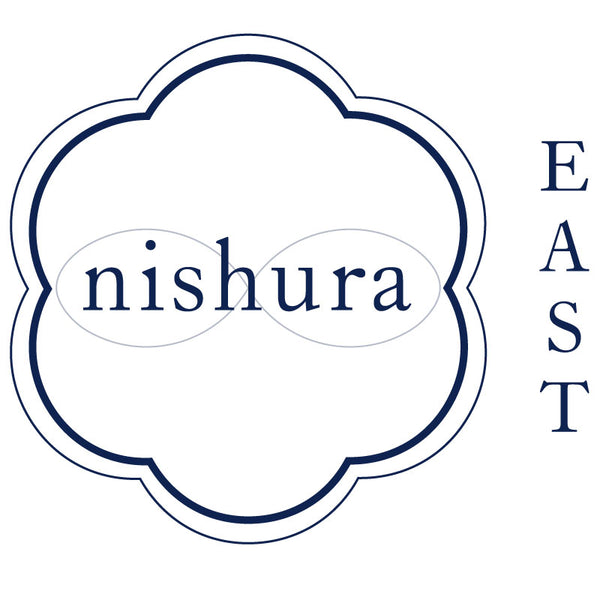Founded in Nihonbashi in 1899, Marukyu Shoten has long been a champion of chusen—a uniquely Japanese stencil dyeing technique that brought vibrant tenugui towels and yukata summer kimonos into daily life during the Meiji period (1868-1912). Unlike modern printing, chusen is entirely done by hand, layering resist paste and pouring dyes through up to 40 layers of fabric, creating patterns rich in character with no front or back. Today, Marukyu Shoten continues to revive historic motifs and develop new designs in collaboration with master craftsmen, keeping this expressive and deeply cultural technique alive for the modern world.
Chusen, a century-old resist dyeing technique, involves layering cotton cloths, applying rice paste stencils, and then carefully hand-pouring dye to saturate the fabric. The colours blend with gravity and human touch, creating patterns that are never truly identical—soft gradients, mirrored motifs, and subtle textures that cannot be replicated by digital printing.
Their work is rooted in long-lasting functionality. Each versatile tenugui cloth can be used all year round and an azuma bag can be passed down for generations.

Slim, soft, and quietly versatile, the tenugui is a traditional Japanese cotton cloth used for centuries in everyday life. There are no stitched edges; instead, the tenugui is left to fray gracefully, softening with use and becoming more personal with age. It can be worn as a head wrap or scarf, used as a tea towel, laid across a table, tied around a bottle or lunchbox, or even framed as art. With each fold or function, the cloth offers both elegance and intent—practical yet poetic.

Crafted from tenugui or similarly shaped cloth, the azuma bag is a folded, stitched textile bag designed for daily use. It is as subtle and understated as the drape of a kimono sleeve, yet durable. Despite its gentle silhouette, the azuma bag can accommodate anything from nappies to parcels padded in bubble wrap—its soft structure moulds to the shape of your belongings, making it ideal for light errands or organising essentials. Fully machine-washable and endlessly reusable, it's a beautiful alternative to plastic carriers, embodying the Japanese value of sustainability through form and function.

The designs on Marukyu Shoten are more than aesthetic choices—they are motifs rich with symbolism. Among them, Soroban mirrors the beads of a traditional abacus, symbolising precision and the thoughtful nature of craftsmanship. Shizuku, meaning droplet, captures the quiet elegance of falling water, evoking purity and the fleeting beauty of the natural world. The gentle, undulating lines of Uneri Shima recall ocean waves, speaking to the rhythm and flow of life itself. Asatsuyu, or morning dew, reflects the delicate, ephemeral moments so deeply cherished in Japanese aesthetics. And Maruni Masume, a checkerboard framed within a circle, suggests harmony, structure, and quiet abundance—its design echoing the dignified simplicity of family crests. Together, these motifs transform a simple cloth into a poetic expression of tradition and beauty.

Every tenugui and azuma bag from Marukyu Shoten is a quiet act of preservation—of artisan dyeing, of seasonal awareness, of a cultural language made visible through textile. In your hands, they’re more than cloth. They’re continuity, care, and craft.

